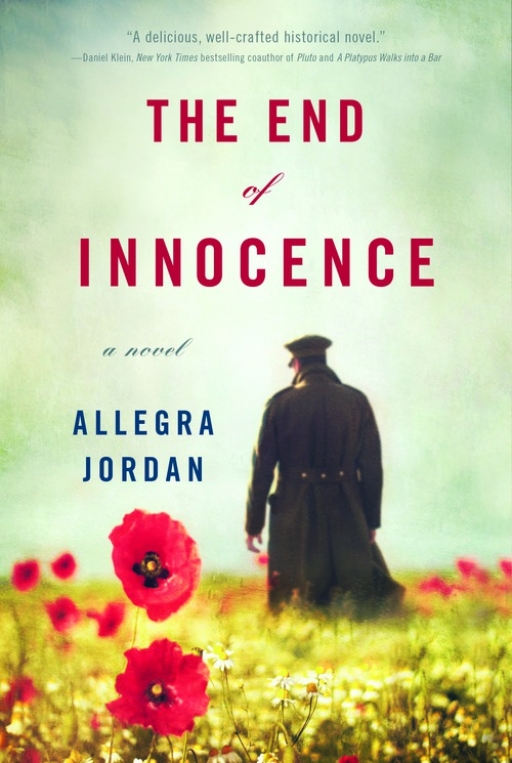Publisher’s Description:
‘It is the twilight of innocence: America 1914. As Europe goes to war, Helen, a Boston bluestocking, begins her studies at Harvard-Radcliffe. Riley, a carefree British playboy more interested in chasing women than studying, sets his sights on her. He is surprised to find his adversary in love is not Helen’s protective brother, but Riley’s own cousin, Wils Brandl. As the roar of war begins to penetrate the quiet walls of Harvard, Wils, a brooding poet and German noble, must return to Europe and face a war for which he is not prepared. Set in Boston and Flanders Fields, The End of Innocence explores love, war, and a new social imagination.’
Centenary News Review:
Review by: Eleanor Baggley, Centenary News Books Editor
The End of Innocence is part-romance, part-social debate. Set in Harvard during 1914 onwards it focuses on the growing relationship between Helen, a Bostonian, and Wils, a German noble, as they study. When the war intervenes on their relationship the novel starts to explore the complexities of national identity and how it can often be in conflict with personal identity. Ultimately the novel is a striking study of relationships in war and, as it draws to its conclusion, it asks us to question how we should memorialise the fallen soldiers on both sides of the conflict.
The relationship between Wils and Helen is an excellent device to explore how war made enemies of friends. The characters themselves are relatively unremarkable, but their lives are choreographed with skill by the author so that they soon come to represent something larger. From the very beginning of the novel the anti-German feeling amongst many Harvard students and professors is palpable and very clearly simmering violently below the surface. One professor, Copeland, becomes a neutral voice of reason throughout. He does not choose sides and he recognises that war is something that is happening to his students. Copeland’s voice reverberates whenever Helen and Wils face difficulties reminding the reader that there are a variety of voices in war.
Arguably the most absorbing element of the novel is introduced towards the end when the idea of remembering both German and American losses on the same memorial becomes part of the debate. Jordan was inspired to include this controversial argument by the true story of the construction of Harvard’s Memorial Church. The struggle to represent both nationalities on the memorial becomes Helen’s struggle and the obstacles she faces are captivatingly imagined.
The End of Innocence is a successful piece of historical fiction which paints a particularly detailed picture of the period it focuses on. Though the war is it’s main focus, all manner of other issues are woven into the story including: female education, women’s rights and voting, academic culture, contraception, and racial hatred. Given that the years preceding and following the conflict were almost as tumultuous as the war years themselves, the level of detail included in the novel creates a wonderful depth.
Even though the title of the novel veers dangerously close to being a cliche, this is an engaging and compelling novel that I would recommend based solely on the exploration of a subject not often examined: how we memorialise the fallen on both sides of the conflict.
What do you think about this book or review? Please add a comment below.
